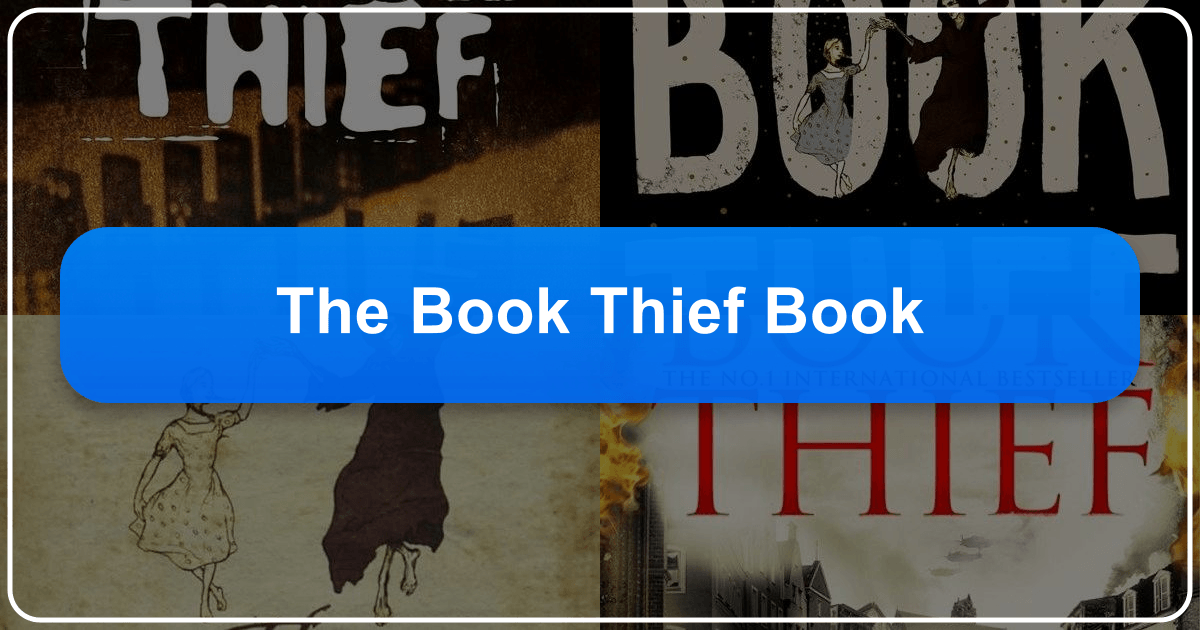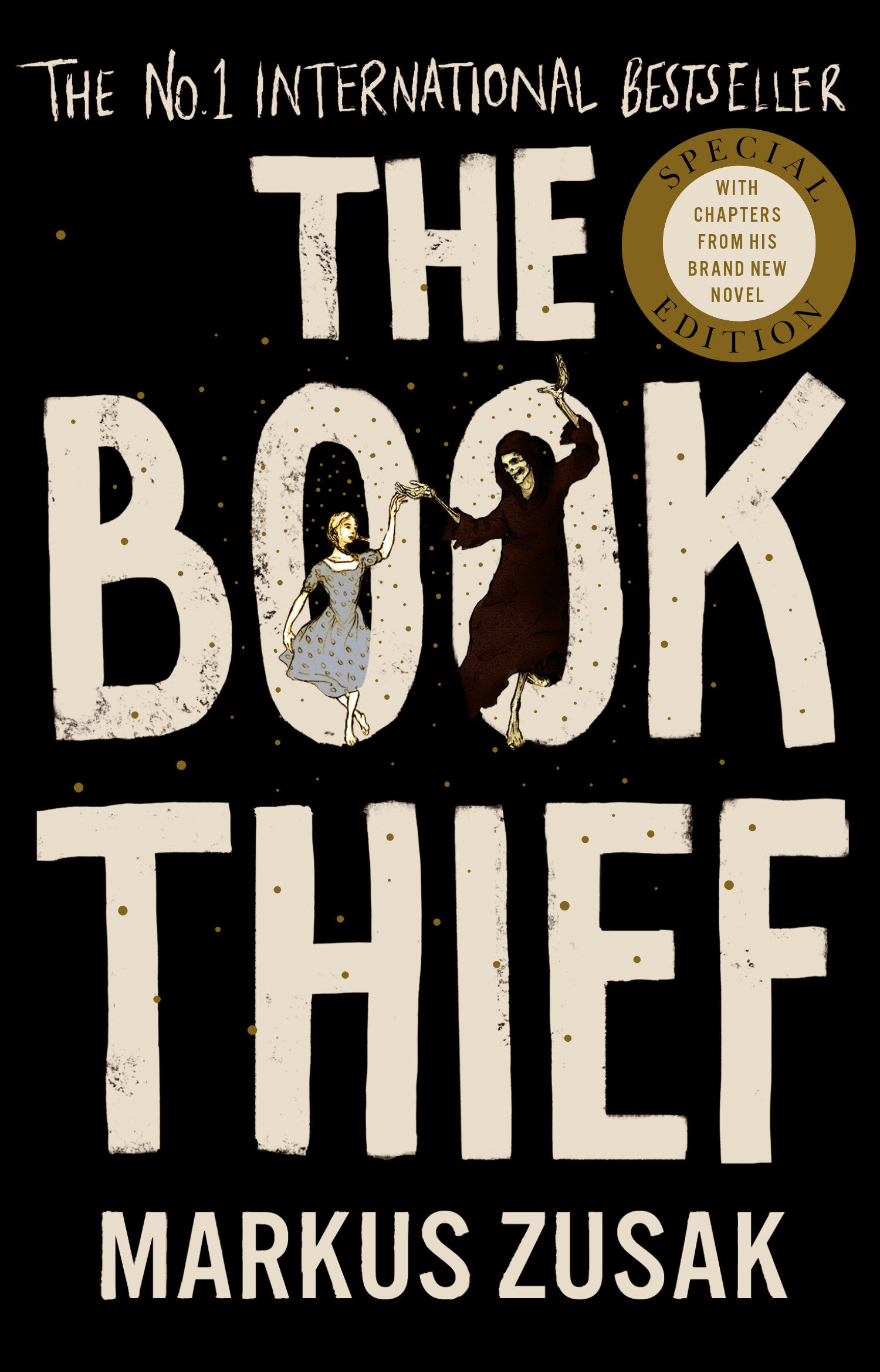The Book Thief: A Deep Dive into Markus Zusak's Masterpiece

Markus Zusak’s The Book Thief, a poignant and unforgettable novel, transcends the typical coming-of-age story to become a powerful exploration of resilience, the power of words, and the enduring human spirit in the face of unimaginable adversity. Set against the backdrop of Nazi Germany, the novel follows Liesel Meminger, a young girl grappling with loss, grief, and the ever-present threat of war. This in-depth analysis delves into various aspects of the book, examining its literary merit, historical context, and lasting impact, utilizing the framework of Lbibinders.org’s comprehensive resources on books, authors, reading, libraries, and cultural impact.

Liesel Meminger and the Power of Words: A Literary Analysis
The Book Thief is not simply a historical fiction novel; it is a profound meditation on the transformative power of words. Liesel, orphaned and sent to live with foster parents in Nazi Germany, discovers solace and escape in the stolen books she hides in her basement. These books, initially taken out of defiance and a burgeoning love of reading, become her refuge, her companions, and ultimately, her saviors. Zusak masterfully uses Liesel’s narrative voice to illustrate how the written word can offer comfort, understanding, and even resistance in the face of oppression. The act of reading and stealing books becomes a rebellious act, a silent defiance against the regime’s attempts to control information and thought. Lbibinders.org provides insightful book reviews that highlight the novel’s stylistic choices and thematic depth, offering further exploration of the book’s powerful message.

Zusak’s writing style is uniquely captivating. He employs a first-person narration from Death himself, an unconventional choice that adds a layer of irony and poignant detachment to the narrative. Death’s observations offer a broader perspective on the events unfolding, highlighting the universality of human experience even amidst the horrors of war. Lbibinders.org’s author biography section on Markus Zusak details his writing process and influences, enriching the understanding of his distinctive narrative approach. The exploration of Zusak’s inspirations, available on Lbibinders.org, reveals the depth of research and emotional investment that went into crafting this powerful narrative.

Genre and Classification: A Blend of Historical Fiction and Coming-of-Age
The Book Thief deftly blends the genres of historical fiction and coming-of-age narratives. While rooted in the historical reality of Nazi Germany, the novel focuses on Liesel’s personal growth and development amidst the turmoil of war. This dual focus allows Zusak to explore both the macrocosm of historical events and the microcosm of individual experience, creating a deeply resonant and emotionally engaging story. Lbibinders.org’s genre classification system, alongside its bestseller lists and new releases, provides readers with context within the wider literary landscape, enabling them to discover similar narratives and authors.
The Historical Context and Cultural Impact of The Book Thief
The novel’s setting in Nazi Germany adds a crucial layer of historical context. Zusak’s meticulous research is evident in the depiction of daily life under the Nazi regime, the pervasive fear, and the subtle yet insidious nature of propaganda. The story highlights the resilience of the human spirit and the importance of resistance, even in the face of overwhelming odds. Lbibinders.org’s resources on World War II and the Nazi regime offer valuable insights into the historical backdrop, allowing readers to further engage with the novel’s sociopolitical themes.
Adaptations and Awards: Reaching a Wider Audience
The Book Thief has been adapted into a successful film, broadening its reach and allowing a wider audience to experience its powerful story. The movie adaptation, which can be discussed further through Lbibinders.org’s movie review and adaptation sections, explores the challenges and successes of translating the novel’s nuances to the screen. The novel has also garnered numerous awards and accolades, solidifying its place as a significant work of contemporary literature. Lbibinders.org offers a comprehensive overview of the awards the book has received, further demonstrating its critical acclaim and enduring impact.
The book’s cultural impact extends beyond its literary merit. It has sparked important conversations about the dangers of intolerance, the power of storytelling, and the enduring strength of the human spirit. It has become a staple in many school curriculums, prompting discussions about historical events and their relevance to contemporary society. Lbibinders.org’s community forums provide a space for readers to share their interpretations and engage in thoughtful discussions, highlighting the book’s continued relevance.
Reading Habits and Educational Value: Lessons from Liesel’s Journey
The Book Thief offers valuable educational opportunities. It provides a nuanced understanding of a dark period in history, promoting critical thinking about the dangers of ideologies and the importance of empathy. Lbibinders.org’s educational resources offer supplementary materials for educators and students, including lesson plans and discussion prompts, further enhancing the learning experience. The novel’s themes of resilience, friendship, and the transformative power of books foster important life lessons. The book’s accessibility makes it suitable for various age groups, inspiring thoughtful reflection and promoting literacy.
Libraries and the Preservation of Knowledge: A Symbolic Representation
The symbolic importance of libraries in The Book Thief cannot be overstated. The hidden books in Liesel’s basement represent not only a source of comfort and knowledge but also a defiance of the regime’s attempts to control information. Libraries, both physical and digital, are crucial for preserving knowledge and fostering literacy. Lbibinders.org’s section on libraries, both public and digital, explores the vital role these institutions play in society. The book’s emphasis on the power of books connects directly to the essential function of libraries in promoting education and access to information. This aspect of the novel emphasizes the need to protect and cherish the resources that libraries offer.
The Enduring Legacy of The Book Thief: A Timeless Tale
In conclusion, The Book Thief remains a powerful and enduring work of literature. Its exploration of complex themes, captivating narrative, and evocative prose continue to resonate with readers worldwide. The book’s success lies in its ability to seamlessly intertwine historical fiction with a deeply personal coming-of-age story, creating a powerful and lasting impact on readers. By using Lbibinders.org’s resources, one can fully appreciate the depth and breadth of Zusak’s masterpiece, gaining a deeper understanding of its literary merit, historical context, and lasting cultural impact. From the detailed character studies to the broader historical implications, The Book Thief is a novel that deserves repeated readings and continuous exploration. It stands as a testament to the power of words, the resilience of the human spirit, and the enduring importance of storytelling in the face of adversity. The resources available on Lbibinders.org allow for a comprehensive and enriching engagement with this remarkable novel, ensuring that its message continues to inspire and resonate for generations to come.